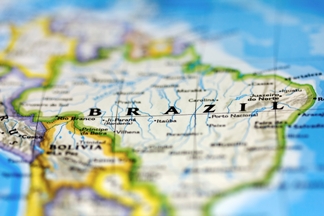Sociology

Global and National Education Policy in Brazil
The interactions between national and global phenomena not only affect public policy areas such as finance, trade, climate change and migration, but also take place in education, a traditionally national policy area. At present, all schools in Brazil are committed to institutional, local, provincial, federal, Latin American and global education plans. The design of all these plans has stimulated political actors to build multiscale coalitions.
References
Rambla, Xavier. A complex web of education policy borrowing and transfer: Education for All and the Plan for the Development of Education in Brazil. Comparative Education. 2014, vol. 50, num. 4, p. 417-432. doi: 10.1080/03050068.2014.907644.
In Brazil all schools are committed to institutional, local, provincial, federal, Latin American and global education plans nowadays. Every single school is accountable for its own institutional plan, which is simultaneously aligned with the plan designed by the local and provincial education authorities ―respectively responsible for primary and secondary education. All these initiatives respond to the National Plan of Education as required by the constitution. At the same time, these schools contribute to improving the profile of Brazil according to the report cards whereby the Partnership for Educational Revitalisation in the Americas (PREAL) assesses educational progress. And all of them also contribute to the achievement of the Ibero American 2020 Education Goals.
Often, the interaction between global and national phenomena is taken for granted in many policy areas such as finance, trade, climate change or migration, but very similar interactions also take place in traditionally national policy areas such as education. Across the board, the connection between activities undertaken at different geographical scales is determinant of the undergoing social transformations.
In Brazil, the design of all these plans has stimulated political actors to build multiscale coalitions. Thus, since the candidate of the Workers’ Party (Partido dos Trebalhadores), Inácio Lula da Silva, gained the Federal presidency in 2003, and during the later periods of the incumbent president, Dilma Roussef, who also belongs to the same party, a coalition was built gathering the provincial and the regional governments hold by the same party and the main national teachers’ union as well as international bodies such as the United Nations Educational, Scientific and Cultural Organisation and the Ibero American States Organisation. This coalition mostly stands for implementing an ambitious understanding of the Education for All movement by means of these plans, which all these political actors present as the guarantee of a human right. Simultaneously, a network of business-friendly private foundations and political lobbies availed the PREAL initiative, supported by the World Bank, to launch the All for Education (Tudos pela Educaçӑo) campaign. The outcome is not direct conflict but a complex and subtle interplay of conflict and negotiation in a variety of forum and political arenas.
These two coalitions draw on their own account of educational development, too. On the one hand, the former relies on the thesis that wide-ranging education policies trigger virtuous circles between early childhood care, primary, secondary and tertiary education. This perspective was the global response of transnational advocates and international bodies such as UNESCO to the almost exclusive attention that the World Bank paid to primary education while it was implementing what was known as the Washington Consensus in the eighties and nineties. On the other hand, All for Education draws on a strategy widely underscored by the World Bank, which basically expects great progress from improvement in school management by means of performance- based and competitive schemes. Those global ideas have become domestic in Brazil, but there the government and the civil society eventually transformed them into new global messages concerning education policy.
Currently, any intellectual account of recent social changes and any political diagnosis undertaken to guide ulterior action must be aware of these complex geographies. In a country like Brazil a crucial key for the success of both parties is the political capability to cope with the current state of affairs at varied layers of governance. This is not simply the conclusion of a case study on education policy in a middle-income power, but also a general observation regarding many burning political issues everywhere. Generally speaking, education policy, financial regulation, trade liberalisation, active labour market policies, active welfare, climate change, biodiversity, energy efficiency and many other issues are the outcome of similar processes.
Top left figure by iStockphoto/mjbs.
Xavier Rambla
Department of Sociology
2025 Universitat Autònoma de Barcelona
B.11870-2012 ISSN: 2014-6388
